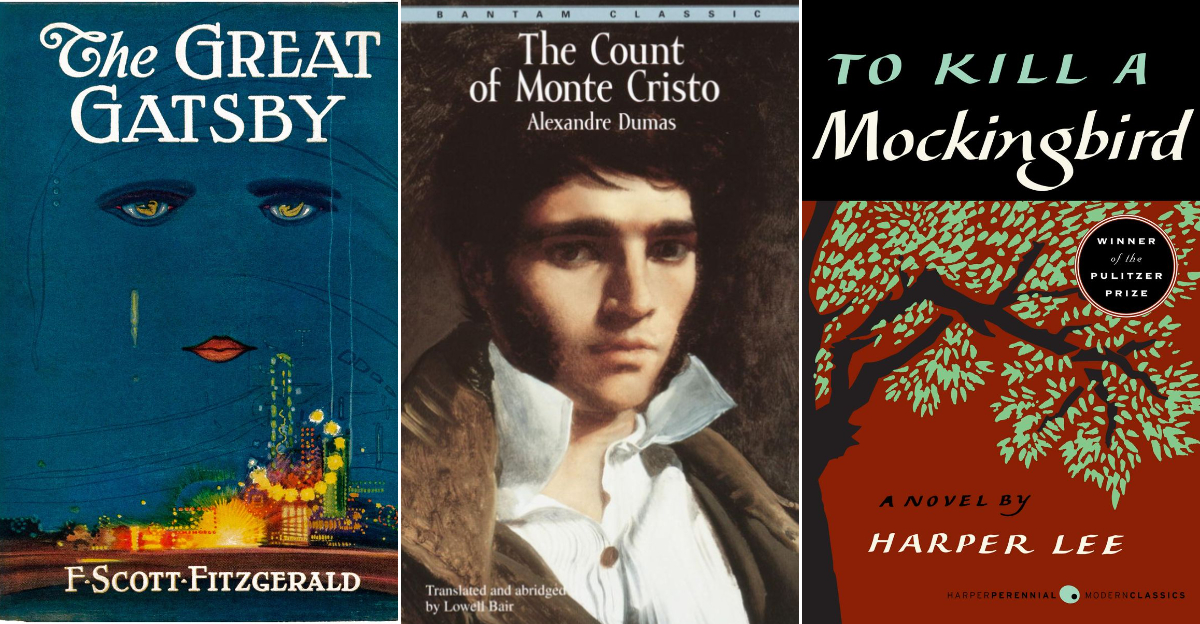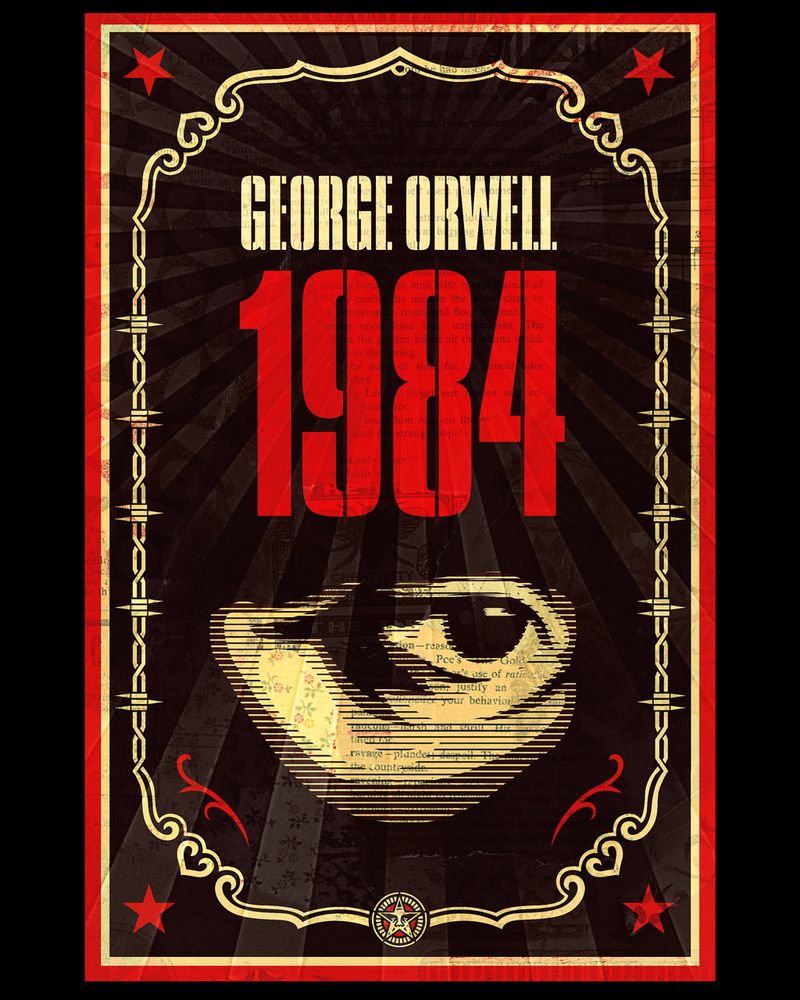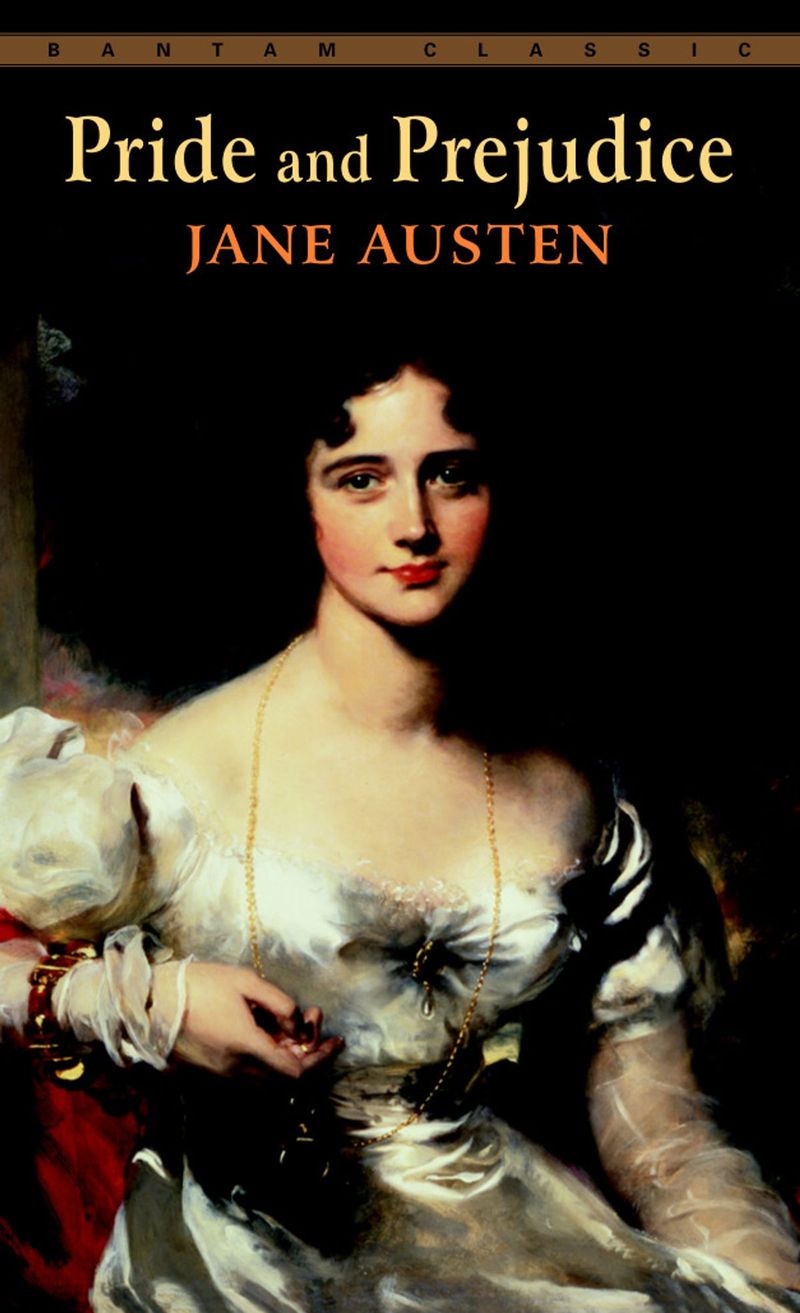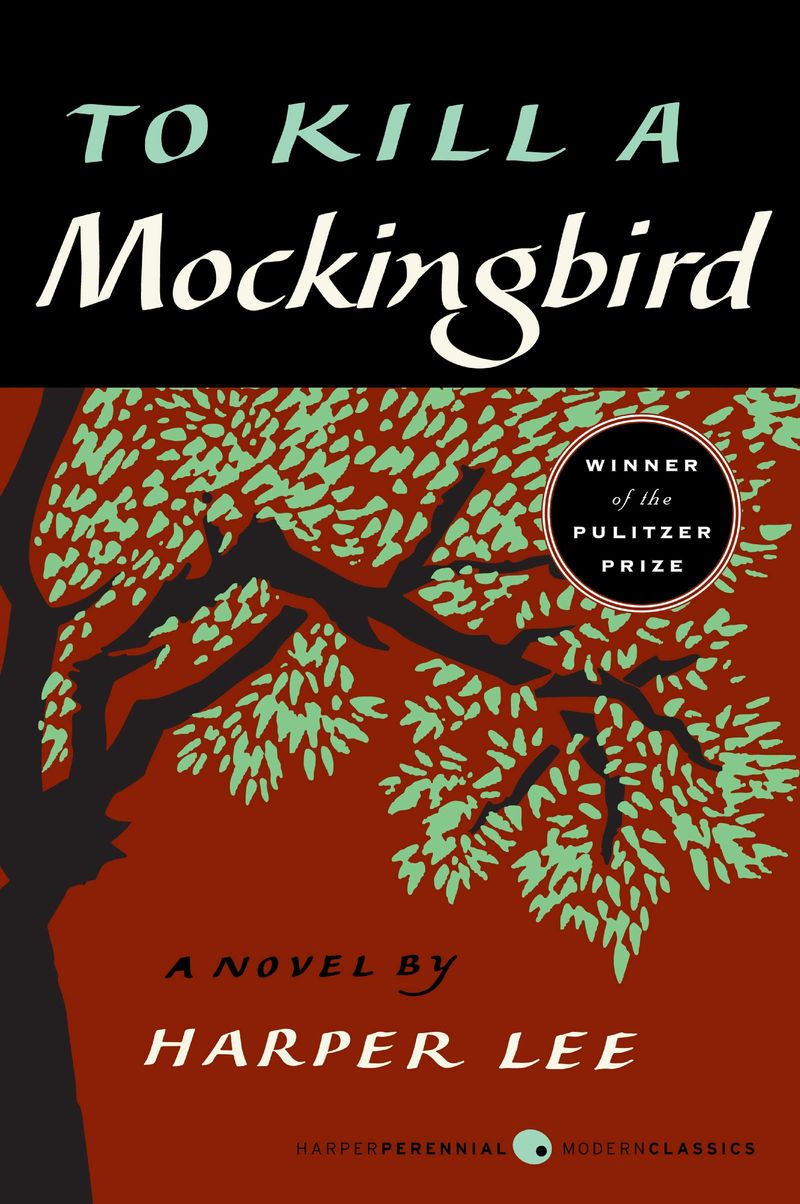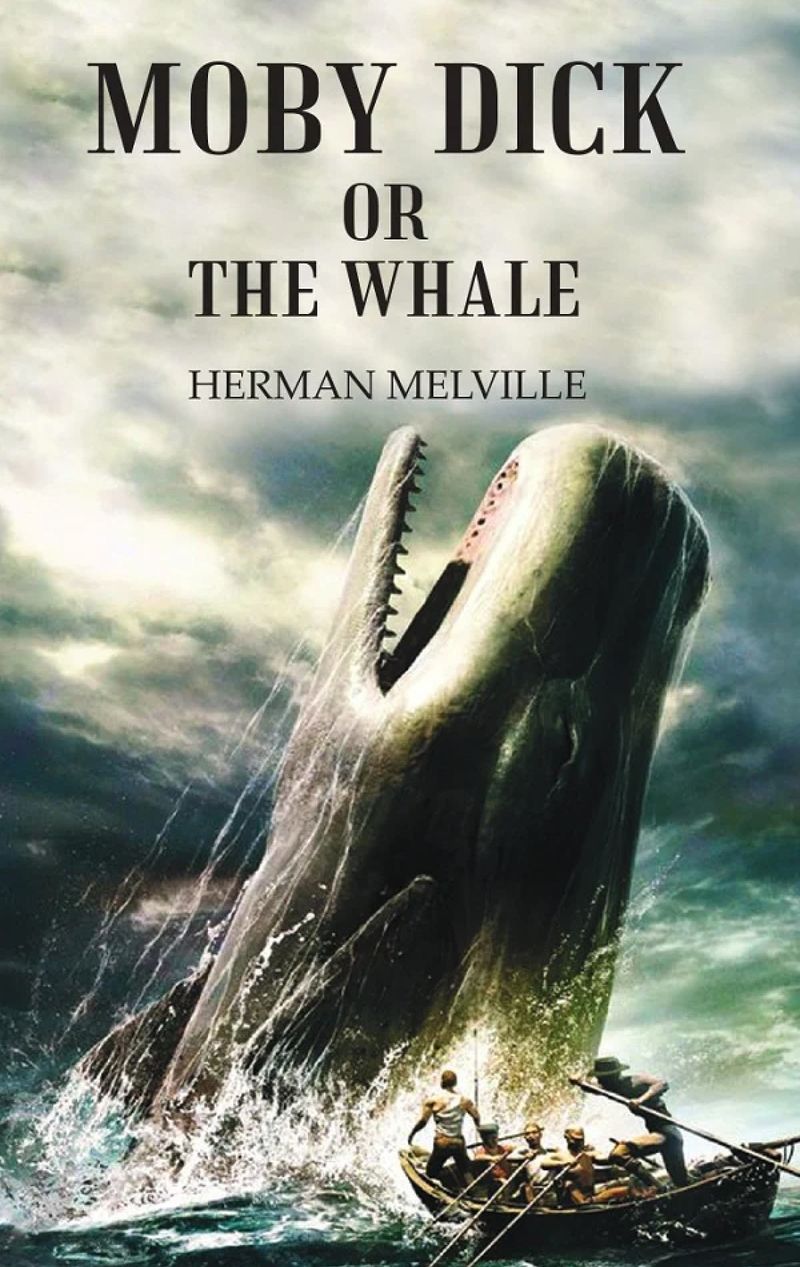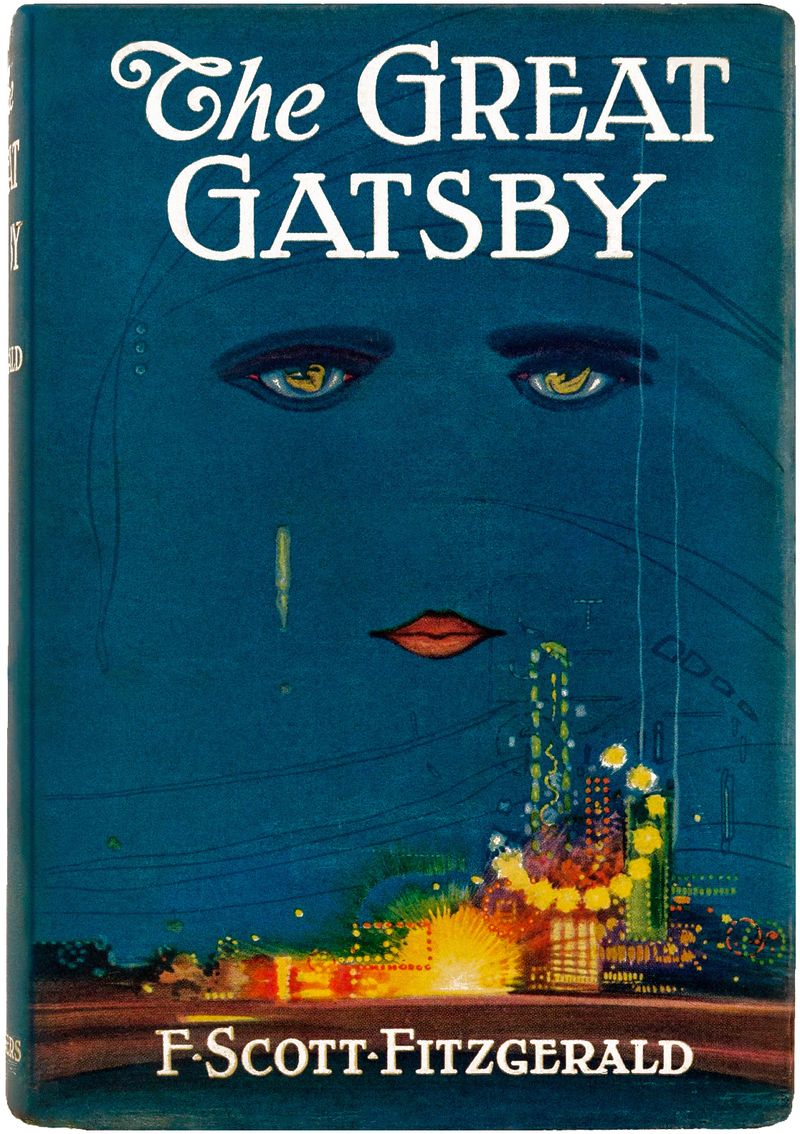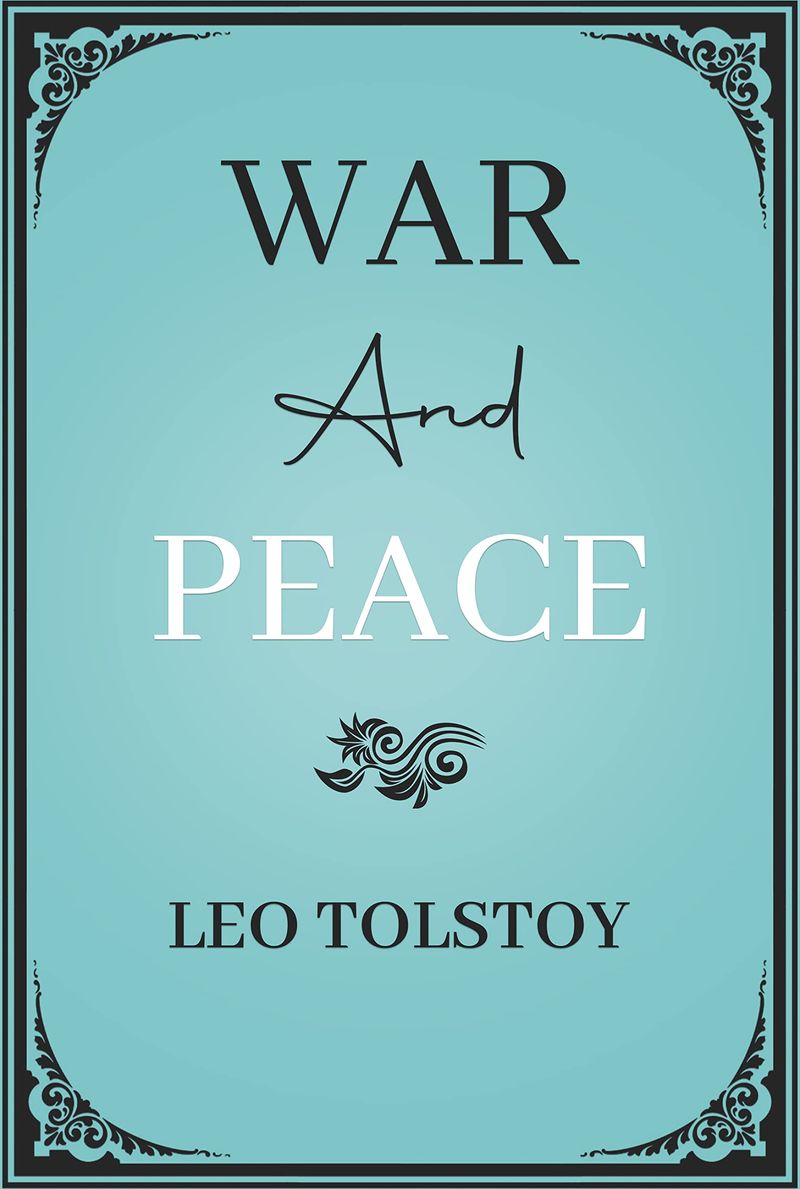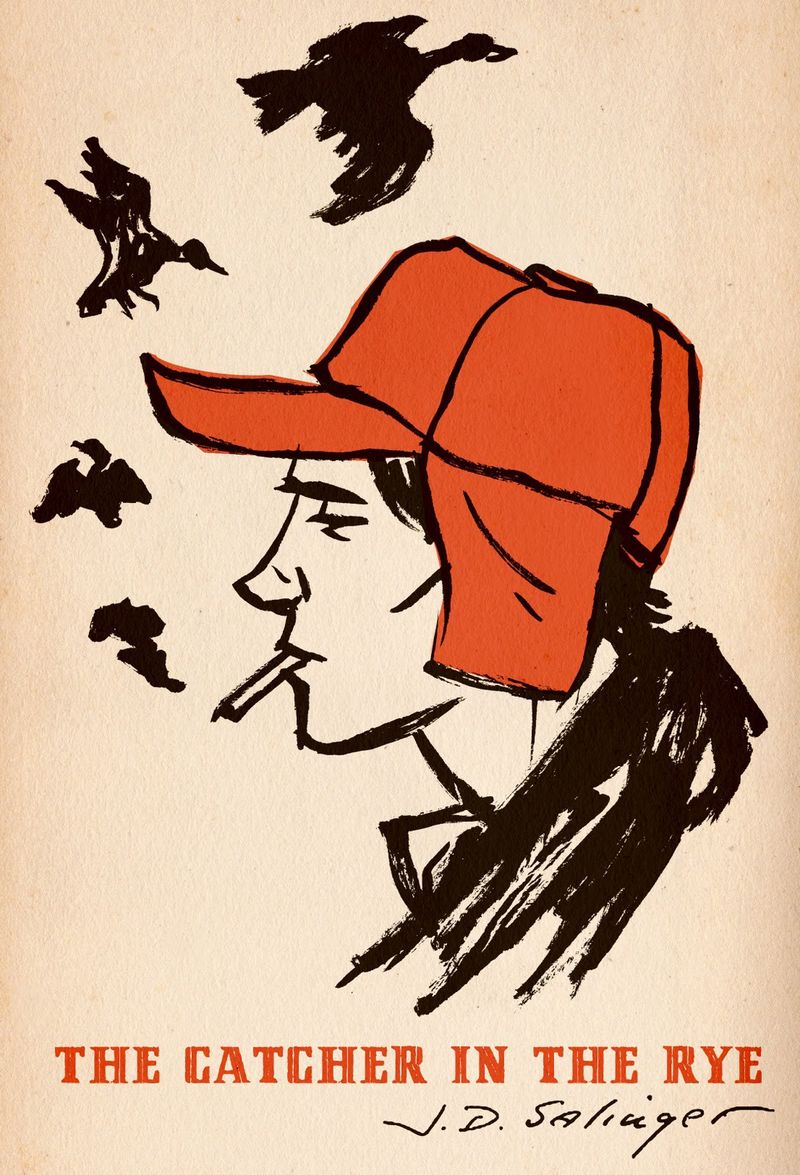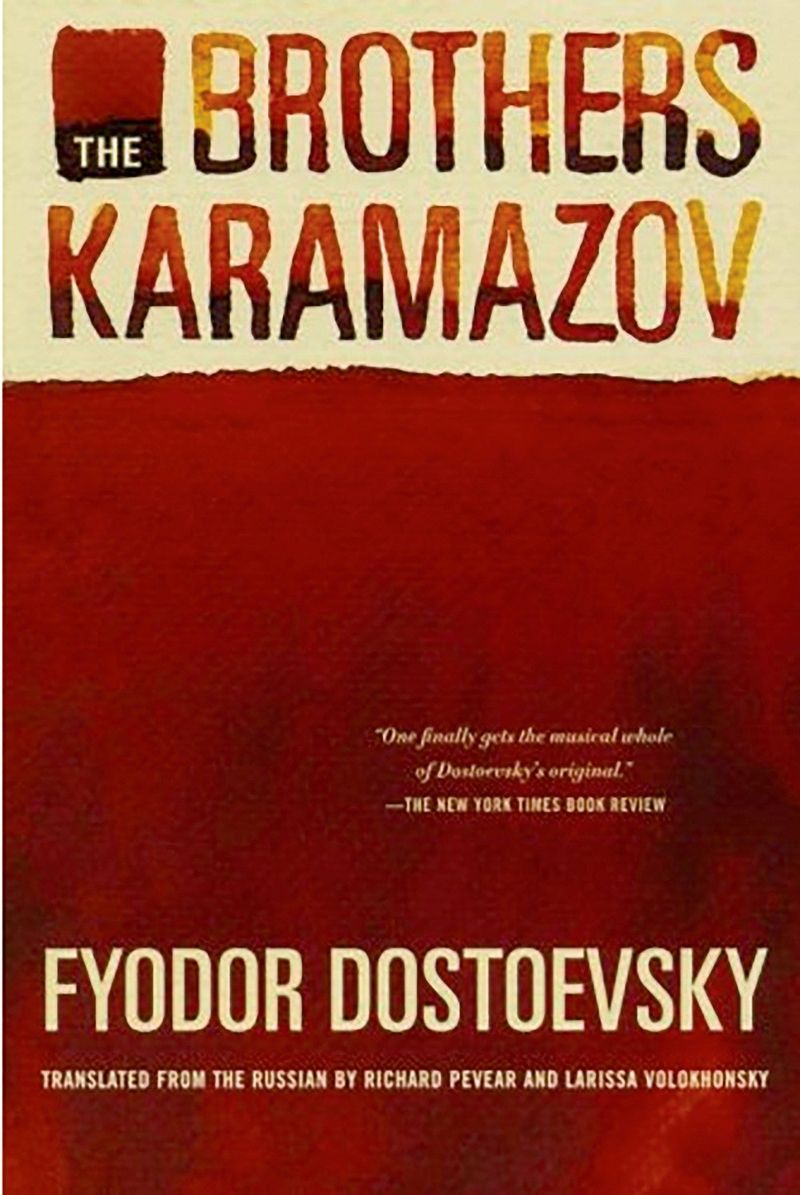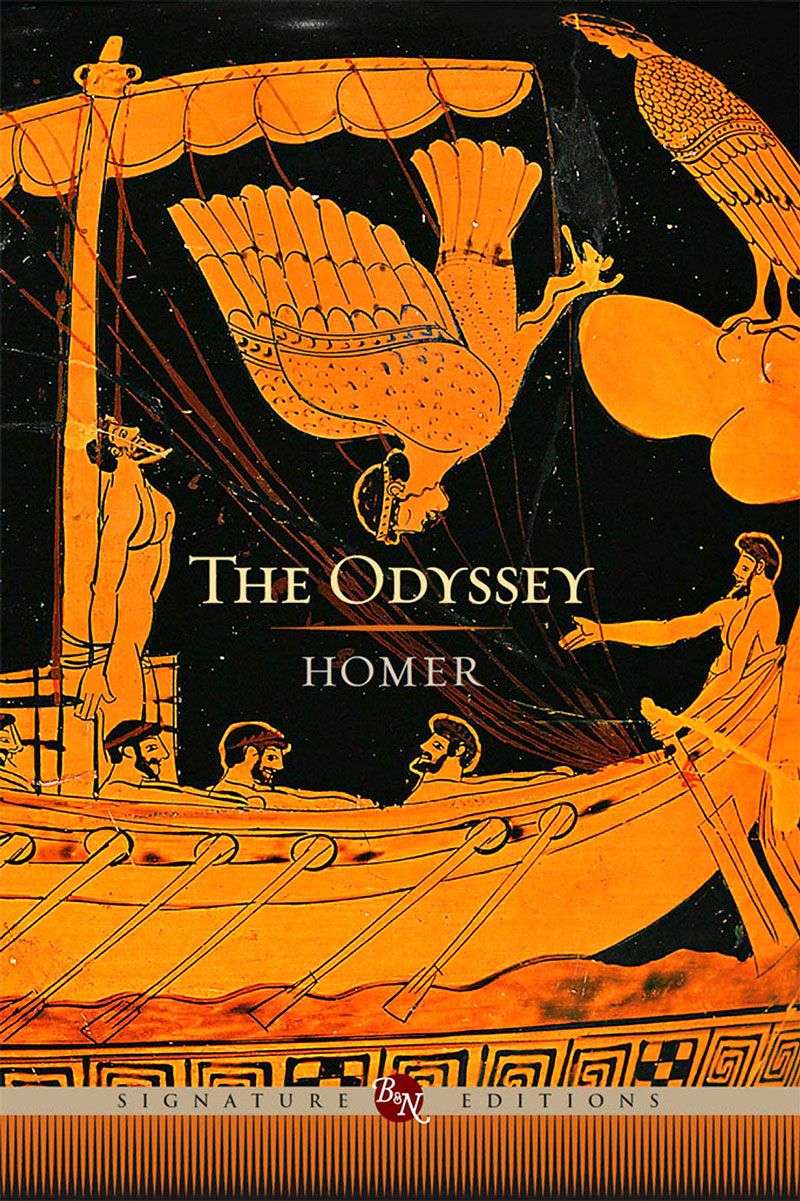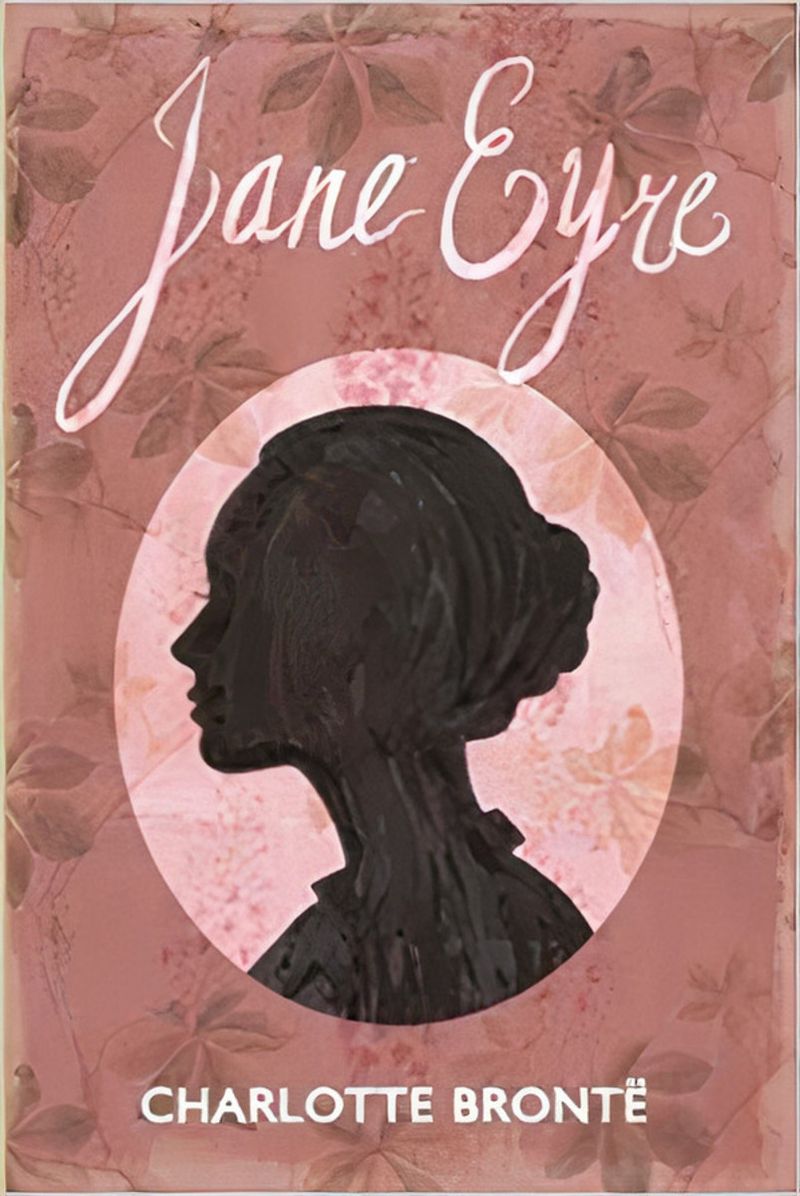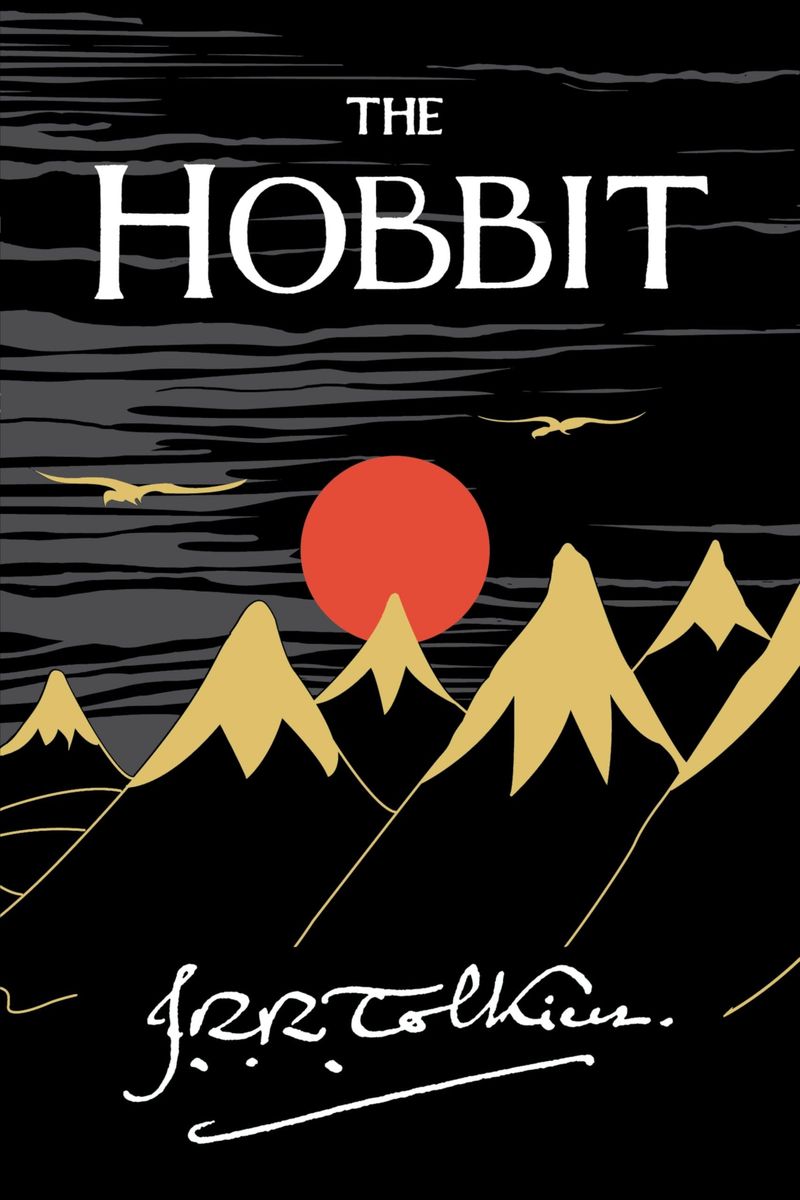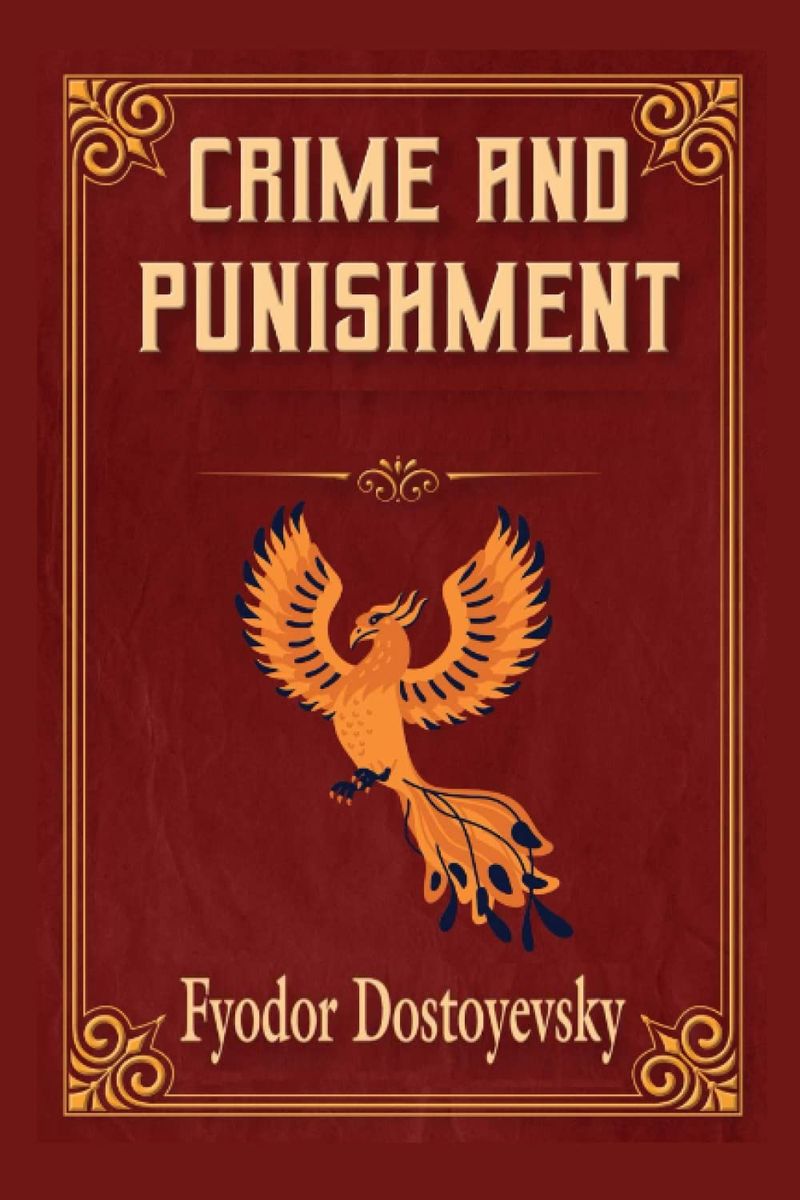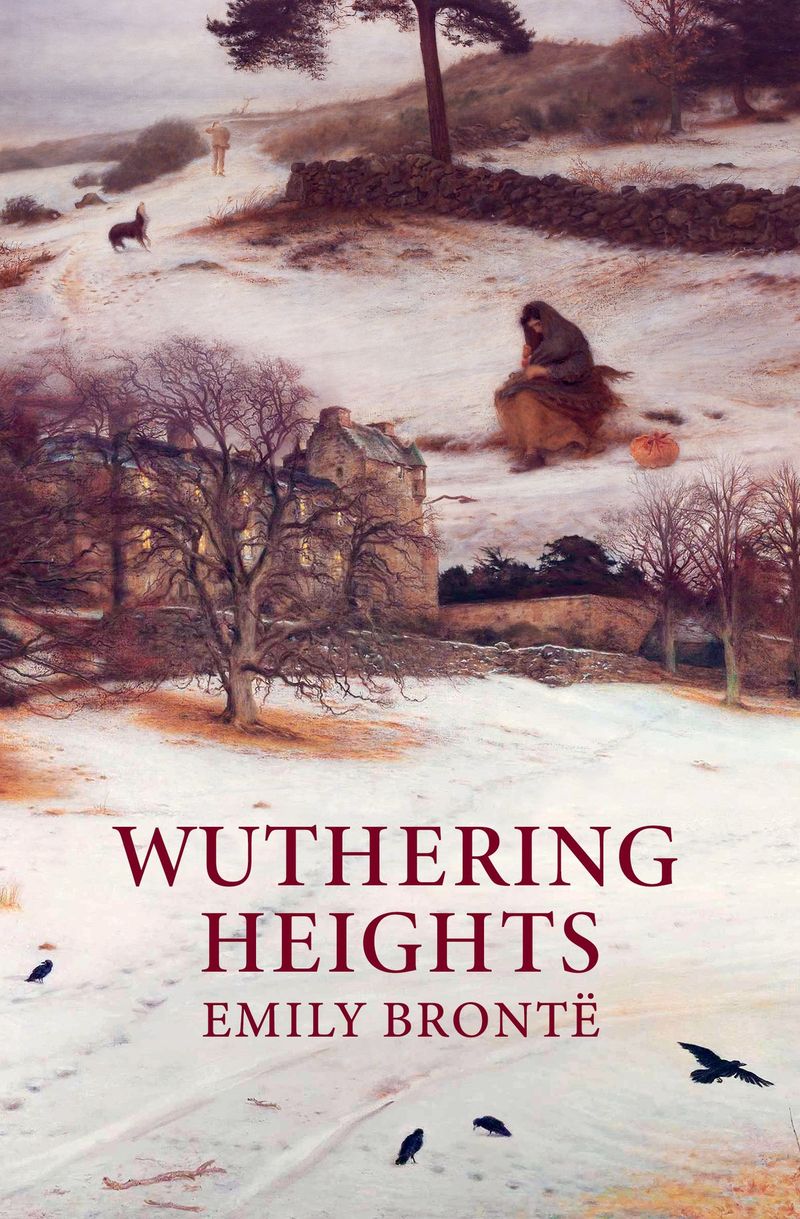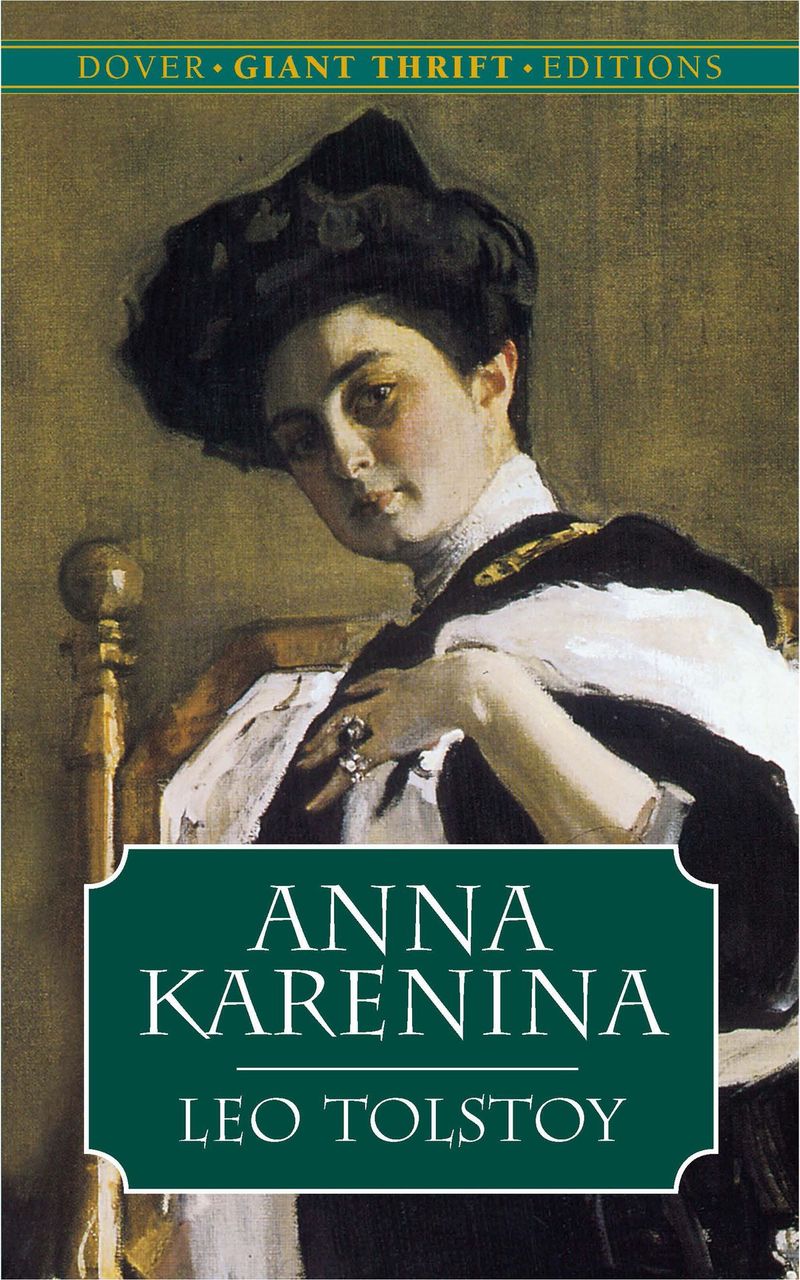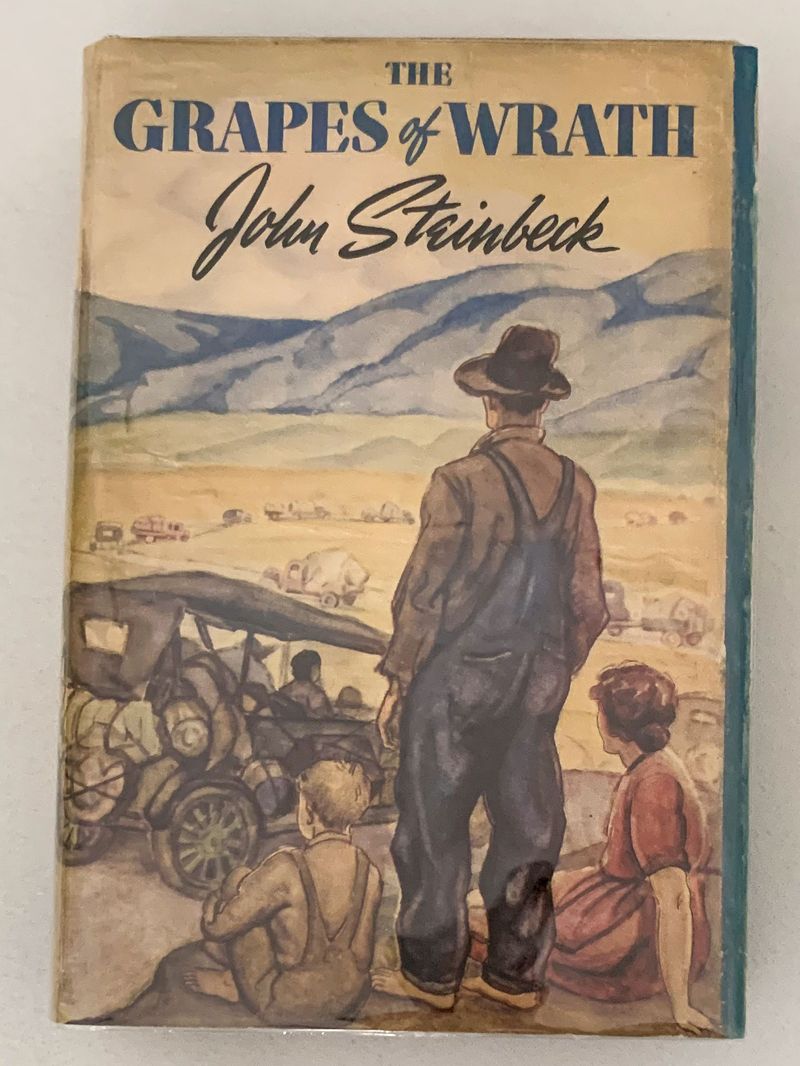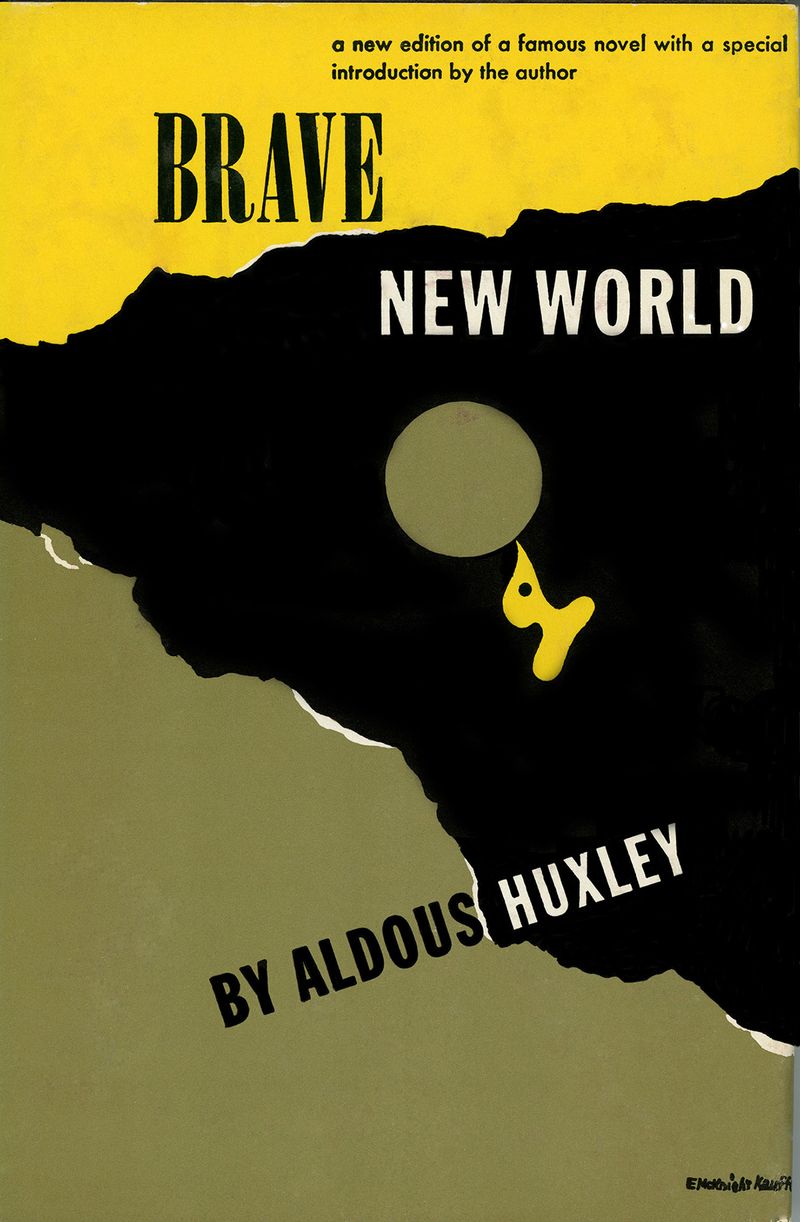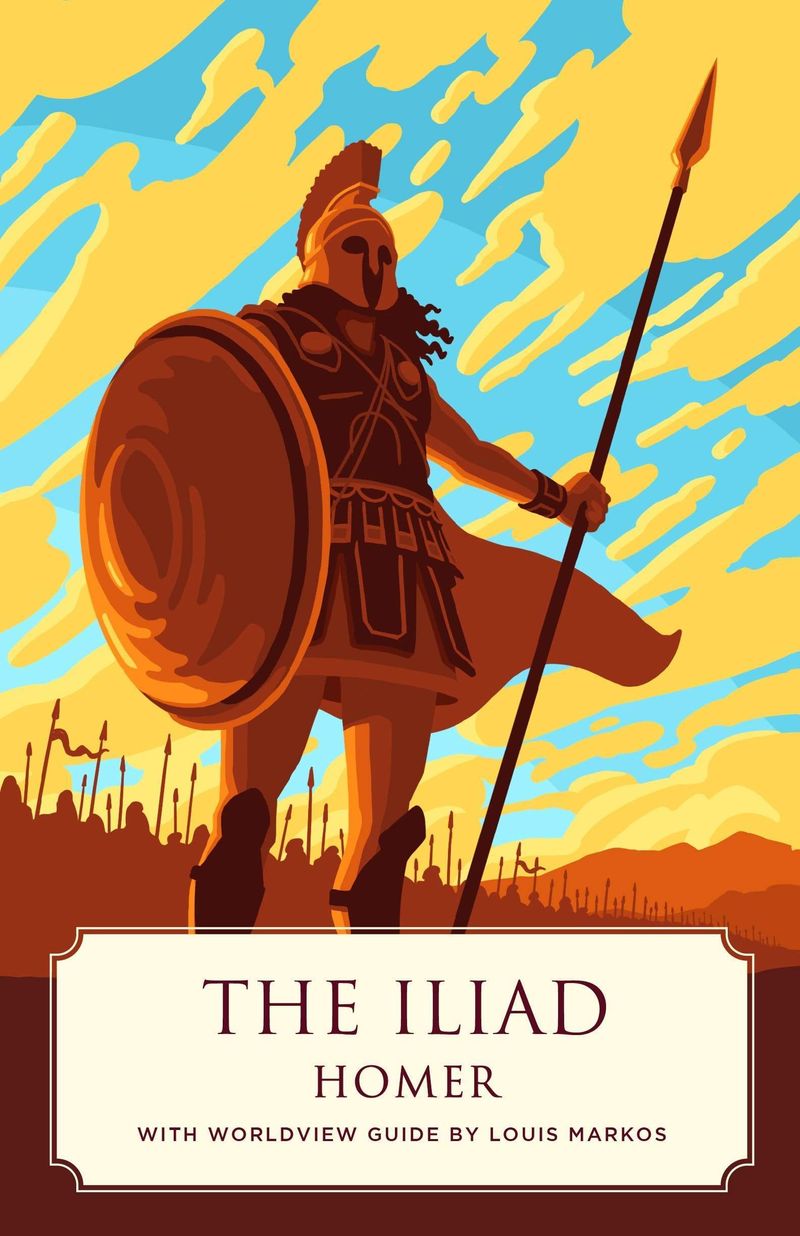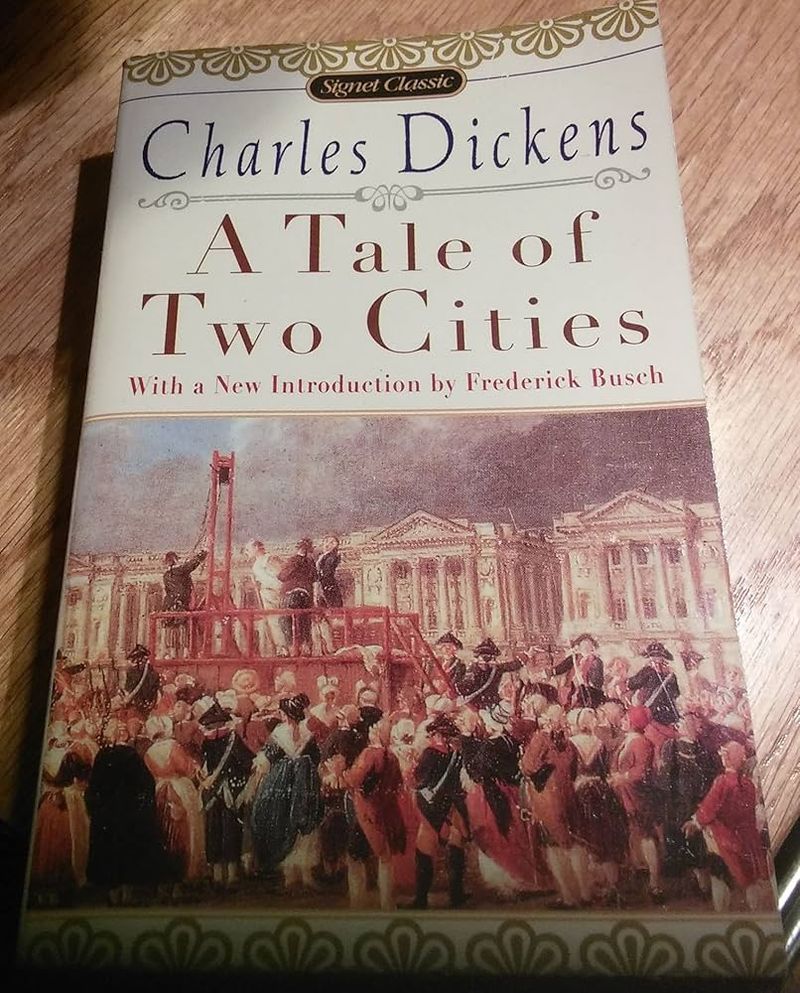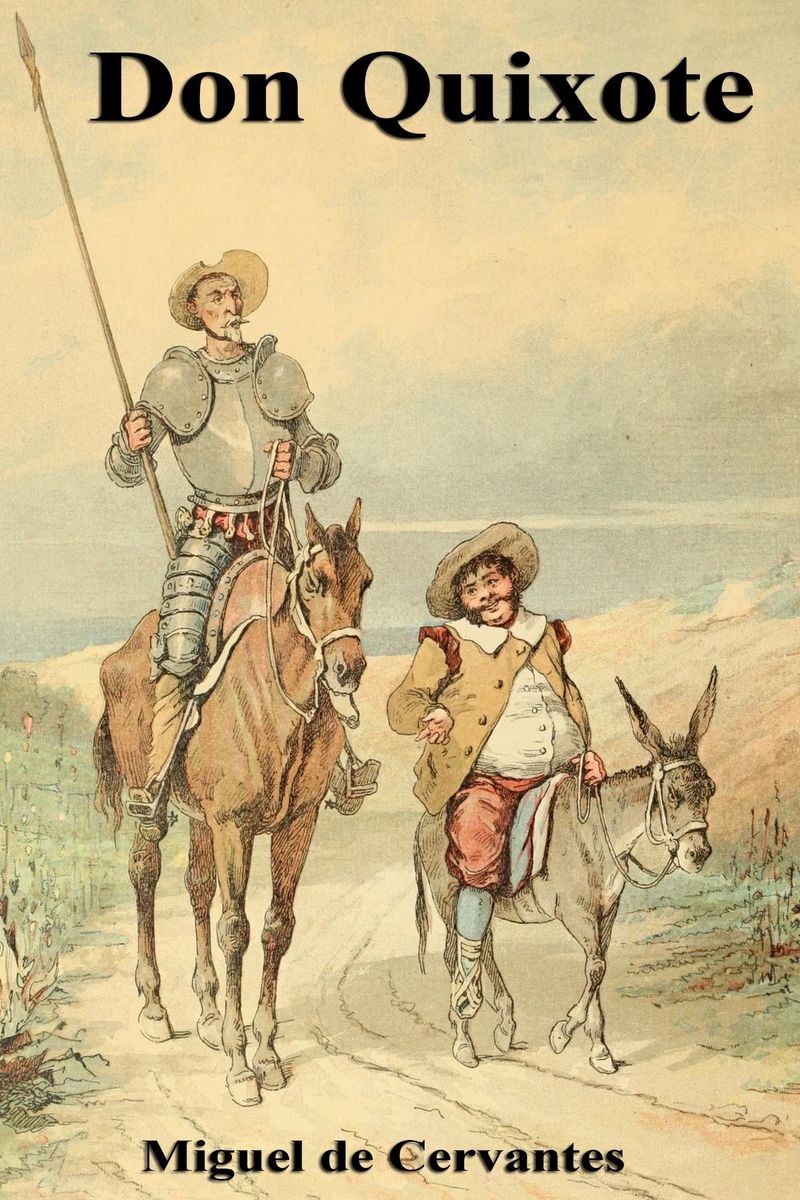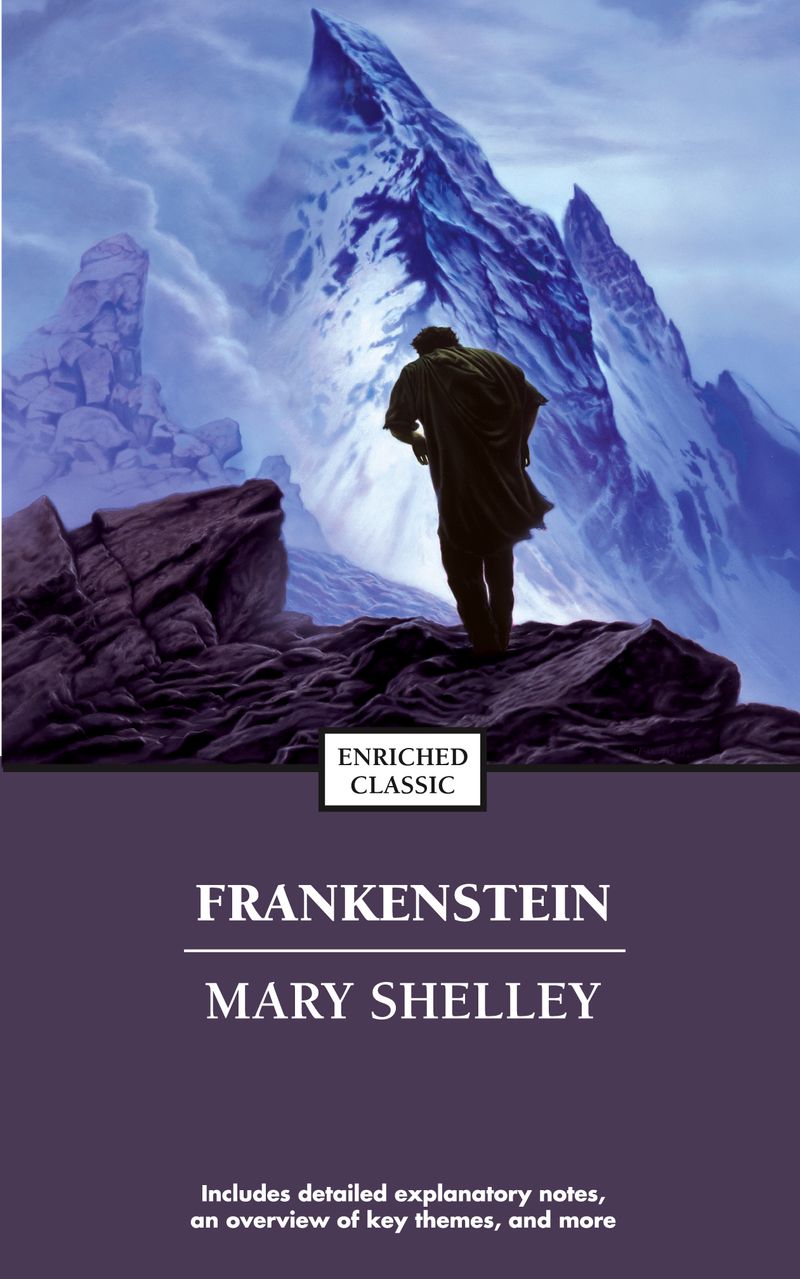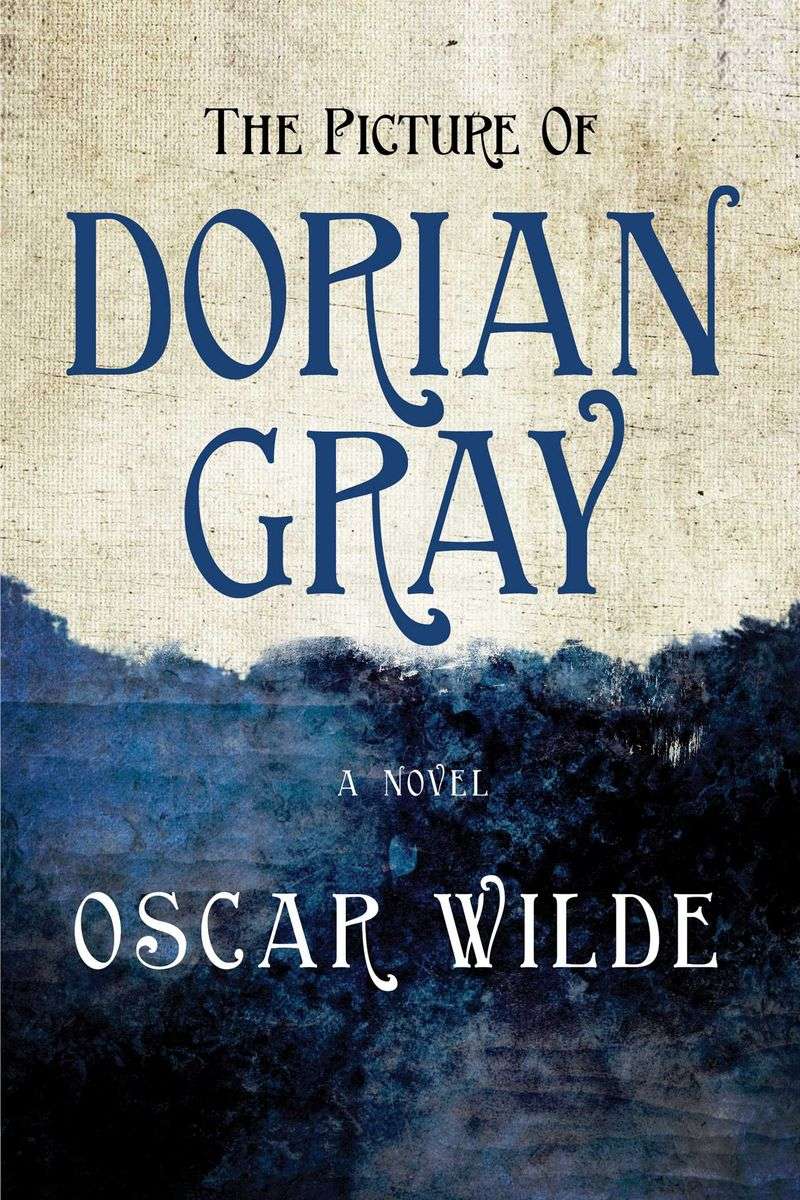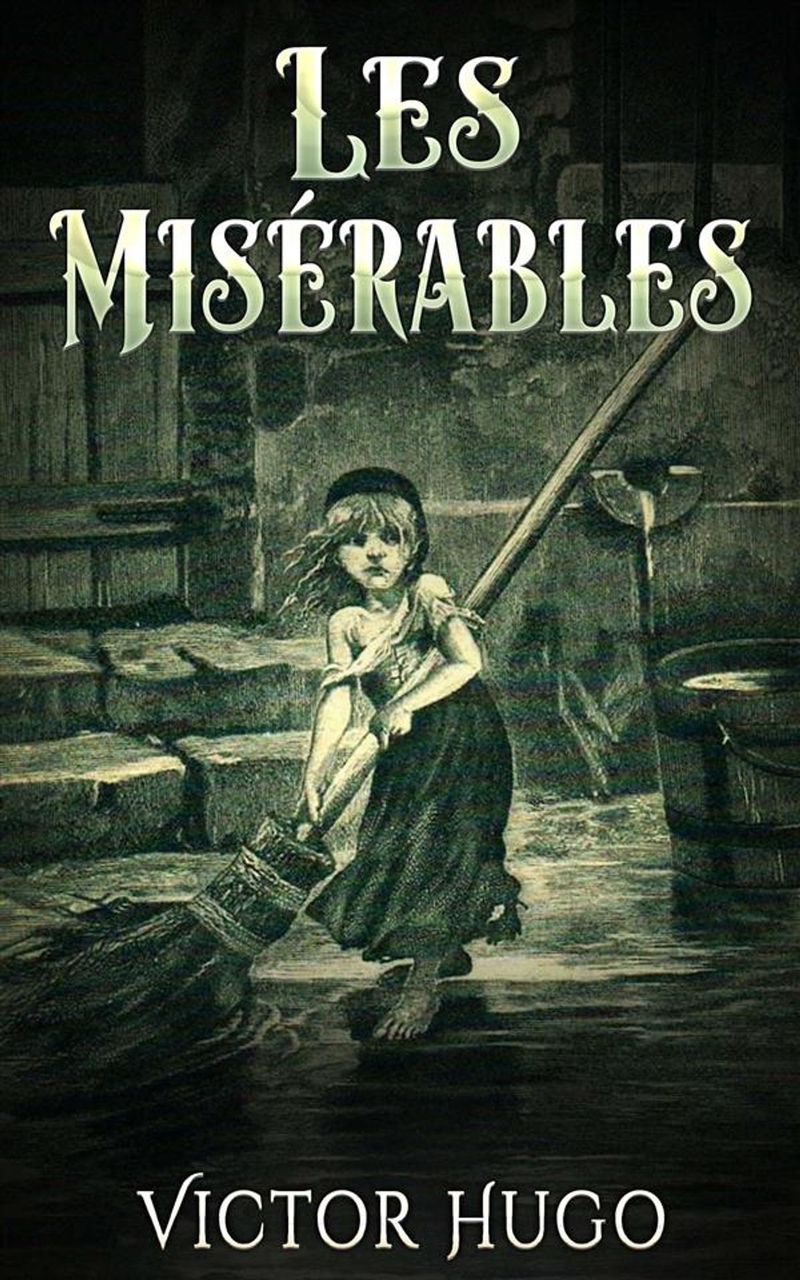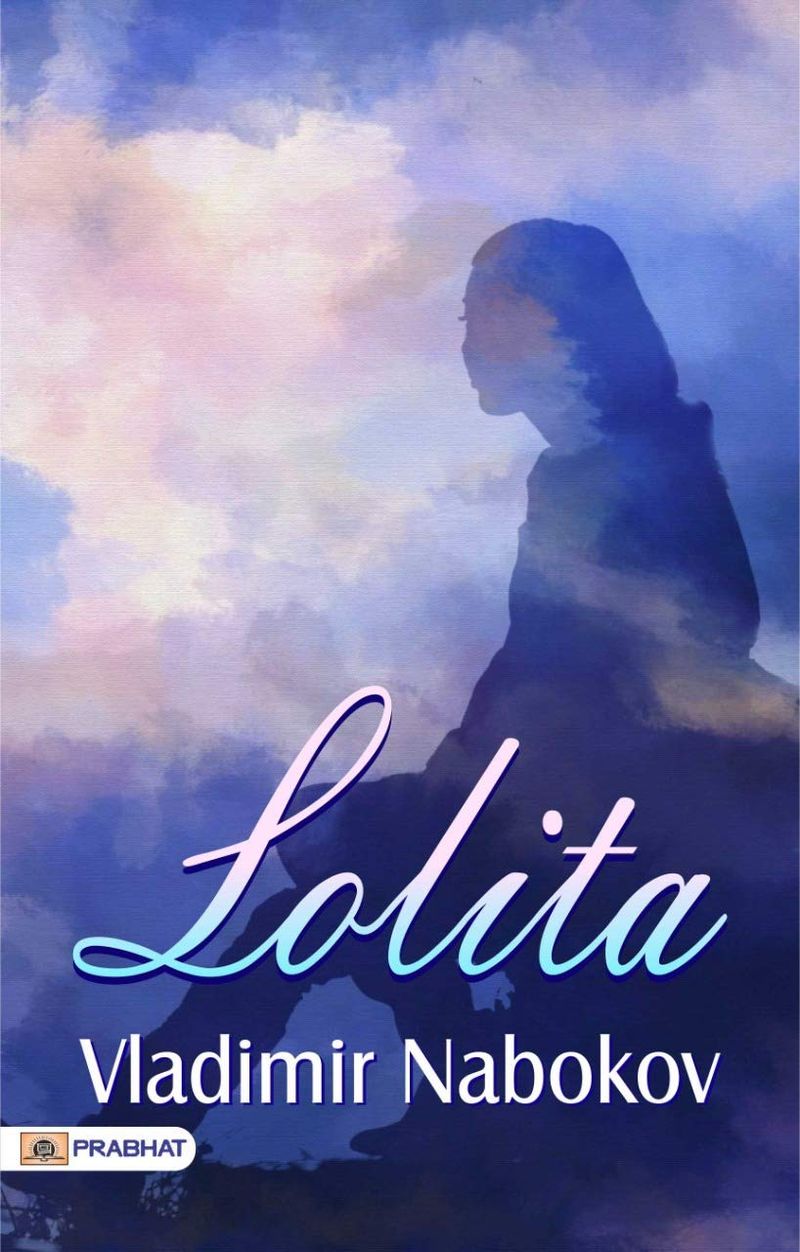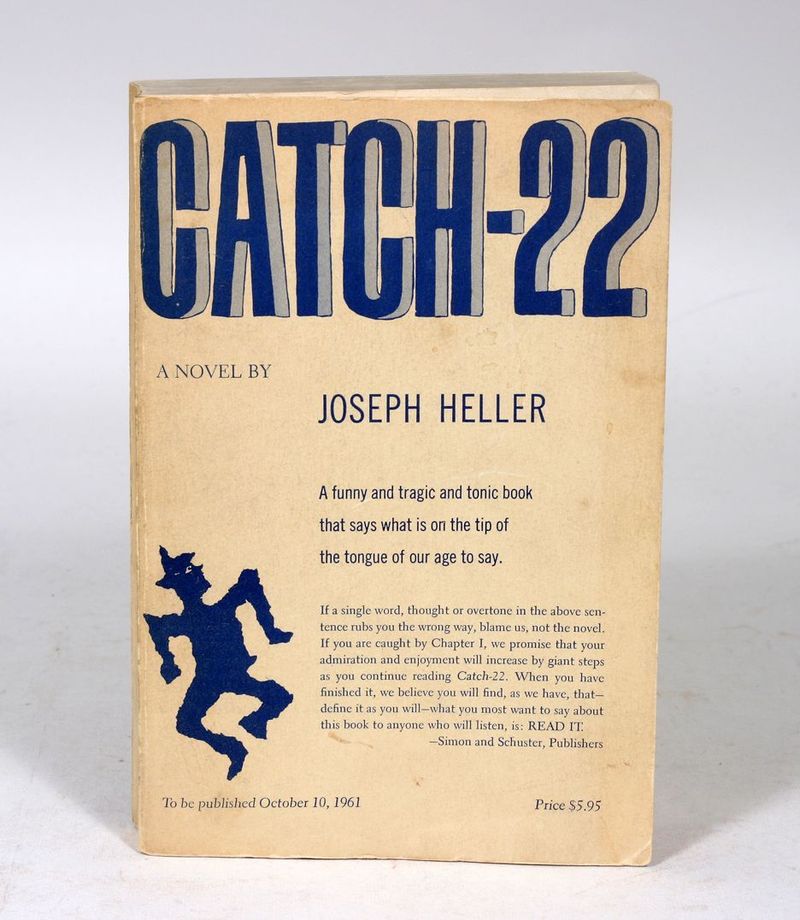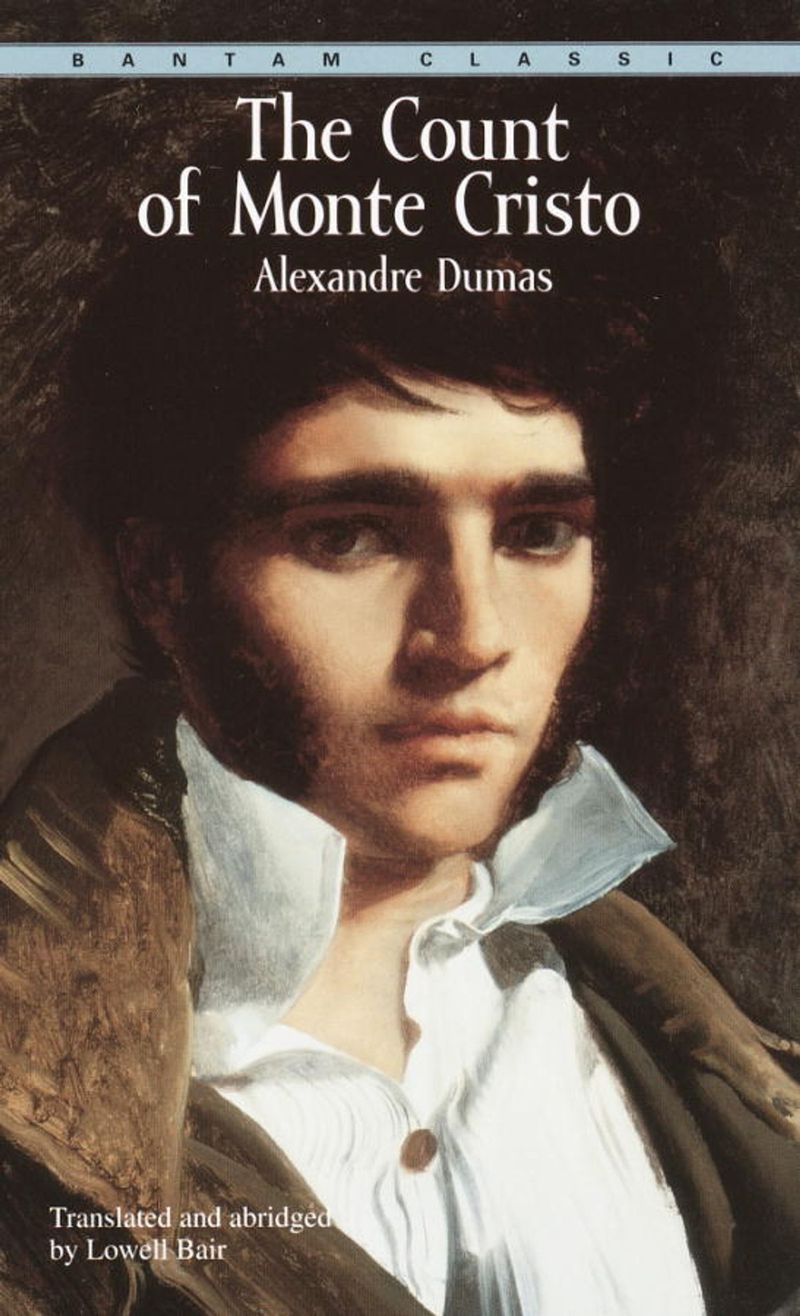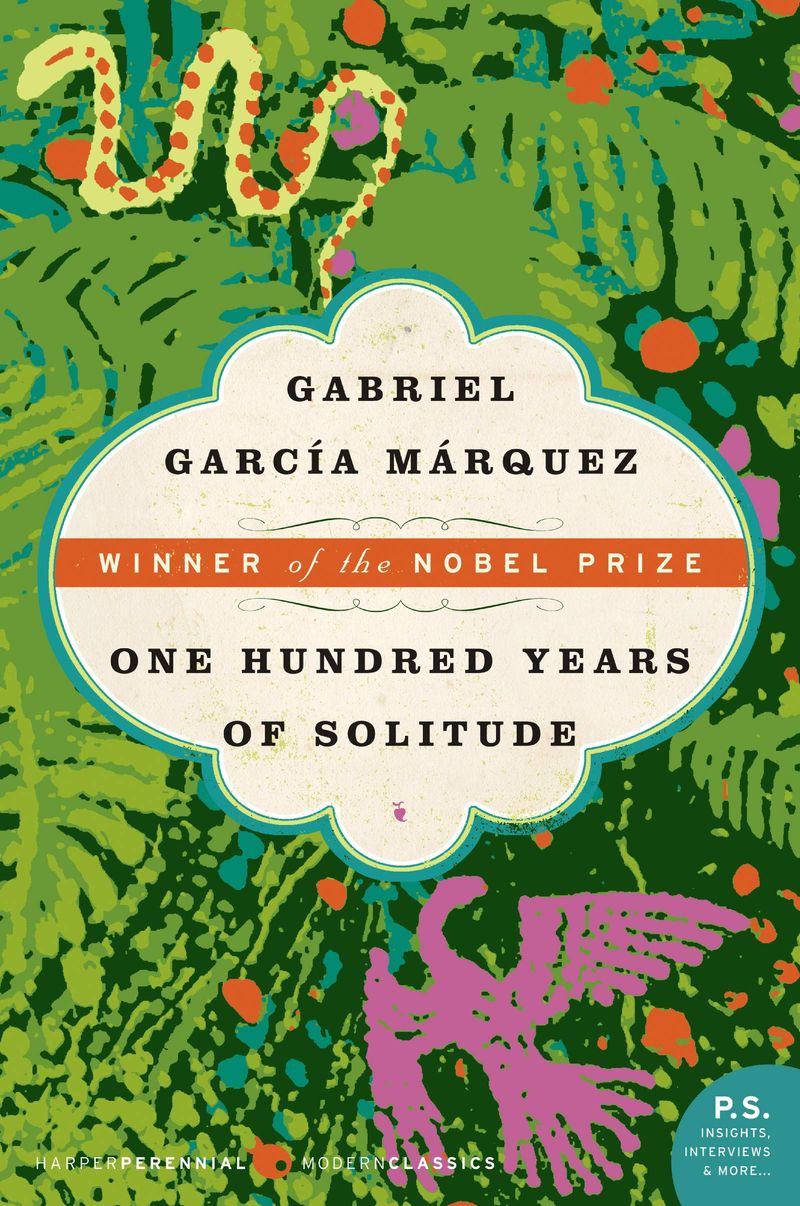Embarking on a journey through literature is an enriching experience every book lover cherishes. The novels listed here are timeless pieces that have left a significant impact on readers worldwide.
From classic tales of adventure to poignant narratives of human connection, these books offer a wide array of themes and insights. Each novel has been selected for its enduring relevance and the unique voice it brings to the literary world.
Dive into this collection and discover stories that will stay with you long after the last page is turned.
1. 1984 by George Orwell
George Orwell’s “1984” presents a chilling vision of a dystopian future where totalitarianism reigns supreme. In a world of constant surveillance and mind control, Winston Smith dares to question the oppressive regime led by Big Brother.
The novel explores the dangers of unchecked governmental power and the erosion of individual freedom. Through its portrayal of a society stripped of privacy and autonomy, Orwell warns of a future where truth becomes malleable, and dissent is crushed.
The book remains a powerful commentary on the importance of critical thought and resistance against tyranny.
2. Pride and Prejudice by Jane Austen
Jane Austen’s beloved novel, “Pride and Prejudice,” delves into the romantic entanglements and societal pressures of 19th-century England. Elizabeth Bennet, known for her wit and intelligence, navigates the complexities of love, family, and class.
Her evolving relationship with the enigmatic Mr. Darcy offers insights into personal growth and the transformative power of love. Austen’s sharp commentary on the roles and expectations of women during her time adds depth to the story.
This timeless classic continues to captivate readers with its humor, charm, and astute observations on human behavior.
3. To Kill a Mockingbird by Harper Lee
Harper Lee’s “To Kill a Mockingbird” is a profound narrative set in the racially charged atmosphere of 1930s Alabama. The story revolves around young Scout Finch and her brother Jem, who are nurtured by their principled father, Atticus Finch.
Atticus, an attorney, stands against racial injustice as he defends a black man accused of raping a white woman. This novel brilliantly captures the innocence of youth juxtaposed with the stark realities of societal prejudice.
Through Scout’s eyes, readers explore themes of morality, empathy, and the complexities of human nature, making this a must-read for all generations.
4. Moby-Dick by Herman Melville
Herman Melville’s “Moby-Dick” is an epic tale of obsession and adventure on the high seas. Captain Ahab’s relentless pursuit of the elusive white whale, Moby Dick, drives the narrative, exploring themes of vengeance, fate, and the limits of human knowledge.
Through the eyes of Ishmael, the novel’s reflective narrator, readers are drawn into the complexities of Ahab’s psyche and the diverse crew aboard the whaling ship Pequod.
Rich with symbolism and philosophical inquiry, “Moby-Dick” stands as a cornerstone of American literature, challenging readers to ponder humanity’s place in the natural world.
5. The Great Gatsby by F. Scott Fitzgerald
F. Scott Fitzgerald’s “The Great Gatsby” paints a vivid picture of the Roaring Twenties, exploring themes of wealth, love, and the American Dream. Jay Gatsby, a mysterious millionaire, is driven by his obsession with Daisy Buchanan, a woman from his past.
Through the eyes of narrator Nick Carraway, readers witness the decadence and moral decay hidden beneath Gatsby’s glittering facade.
Fitzgerald’s lyrical prose and keen social commentary capture the era’s essence while probing the illusion of happiness and the pursuit of impossible dreams. A staple in American literature, this novel resonates with readers today.
6. War and Peace by Leo Tolstoy
Leo Tolstoy’s “War and Peace” is a monumental work that weaves together the lives of several aristocratic families against the backdrop of Napoleonic Wars.
The novel intricately explores themes of love, ambition, and the impact of historical events on personal lives. Through characters like Pierre Bezukhov and Natasha Rostova, Tolstoy examines the moral struggles and philosophical questions of his time.
The narrative’s sweeping scope and rich detail transport readers to a world of opulence, conflict, and transformation. “War and Peace” is celebrated for its insightful portrayal of human nature and its profound historical insights.
7. The Catcher in the Rye by J.D. Salinger
J.D. Salinger’s “The Catcher in the Rye” captures the angst and alienation of adolescence through the eyes of Holden Caulfield, a disenchanted teenager navigating the complexities of adulthood.
As Holden journeys through New York City, he grapples with themes of identity, innocence, and belonging. His candid and often cynical perspective offers a raw and authentic voice that resonates with readers.
Salinger’s exploration of youthful rebellion and existential questioning has cemented the novel’s place as a defining work of 20th-century literature, appealing to generations seeking to understand the challenges of growing up.
8. The Brothers Karamazov by Fyodor Dostoevsky
Fyodor Dostoevsky’s “The Brothers Karamazov” is a profound exploration of faith, morality, and human nature. The novel follows the tumultuous lives of the Karamazov brothers—Dmitri, Ivan, and Alexei—as they confront existential questions and personal dilemmas.
Set against the backdrop of 19th-century Russia, Dostoevsky delves into the complexities of family dynamics and the moral struggles that define human existence.
Through its rich philosophical discourse and compelling narrative, the novel challenges readers to examine their beliefs and the nature of free will. It remains a timeless classic, revered for its depth and insight.
9. The Odyssey by Homer
Homer’s “The Odyssey” is an epic saga of adventure and heroism that has captivated readers for millennia. The tale follows Odysseus as he embarks on a perilous journey home after the Trojan War, facing mythical creatures and divine interventions.
Themes of loyalty, perseverance, and the search for identity are woven into the narrative as Odysseus confronts trials that test his strength and cunning.
Homer’s masterful storytelling and vivid imagery bring the ancient world to life, offering timeless lessons on the resilience of the human spirit. This enduring epic continues to inspire and enthrall audiences.
10. Jane Eyre by Charlotte Brontë
Charlotte Brontë’s “Jane Eyre” chronicles the life of its eponymous heroine, a determined and independent woman navigating the strict social expectations of 19th-century England.
Jane’s journey from an orphaned child to a self-assured adult is marked by trials, resilience, and an unwavering quest for self-respect and love. Her deep connection with the enigmatic Mr. Rochester adds complexity to the narrative, exploring themes of morality, equality, and personal growth.
Brontë’s pioneering portrayal of a strong female protagonist and her critique of social norms make “Jane Eyre” a seminal work in the literary canon.
11. The Hobbit by J.R.R. Tolkien
J.R.R. Tolkien’s “The Hobbit” is a beloved fantasy tale that introduces readers to the enchanting world of Middle-earth.
The story follows Bilbo Baggins, an unlikely hero who embarks on an extraordinary quest to reclaim a lost treasure guarded by the fearsome dragon Smaug. Along the way, Bilbo encounters a diverse cast of characters, including dwarves, elves, and wizards.
Tolkien’s rich world-building and imaginative storytelling create a captivating adventure that explores themes of courage, friendship, and personal growth. “The Hobbit” serves as a gateway to the epic tales that follow in “The Lord of the Rings.”
12. Crime and Punishment by Fyodor Dostoevsky
Fyodor Dostoevsky’s “Crime and Punishment” delves into the psychological turmoil of its protagonist, Raskolnikov, a destitute student who commits a grievous crime. The novel explores themes of guilt, redemption, and the moral dilemmas of human nature.
As Raskolnikov grapples with the consequences of his actions, readers are drawn into his internal conflict and the philosophical questions that haunt him.
Set against the backdrop of St. Petersburg’s gritty streets, Dostoevsky’s masterful narrative offers a profound examination of the human psyche and the complexities of morality. This riveting tale continues to captivate and challenge readers.
13. The Lord of the Rings by J.R.R. Tolkien
J.R.R. Tolkien’s “The Lord of the Rings” is an epic fantasy saga that transports readers to the richly imagined world of Middle-earth. The story follows a fellowship of heroes on a quest to destroy the One Ring, a powerful artifact that threatens the world’s fate.
Themes of friendship, sacrifice, and the battle between good and evil are intricately woven into the narrative. Tolkien’s masterful world-building and intricate character development create an immersive and unforgettable experience.
This monumental work has left an indelible mark on literature, inspiring countless readers with its timeless tale of courage and hope.
14. Wuthering Heights by Emily Brontë
Emily Brontë’s “Wuthering Heights” is a haunting tale of passion and revenge set against the desolate moors of England.
The novel chronicles the tumultuous relationship between Heathcliff and Catherine Earnshaw, whose love defies social conventions and leads to tragic consequences.
Brontë’s evocative portrayal of the wild, untamed landscape mirrors the intense emotions of the characters, creating a powerful atmosphere that immerses readers in the story.
Themes of obsession, betrayal, and the destructive nature of love are expertly explored, making “Wuthering Heights” a timeless masterpiece that continues to resonate with audiences.
15. Anna Karenina by Leo Tolstoy
Leo Tolstoy’s “Anna Karenina” is a poignant exploration of love, society, and the human condition. The novel weaves together the lives of its characters, focusing on the tragic love affair between Anna and Count Vronsky.
Set against the backdrop of 19th-century Russian aristocracy, the narrative delves into themes of passion, fidelity, and the constraints of societal norms.
Tolstoy’s masterful character development and intricate storytelling offer a profound look at the complexities of human relationships and the consequences of choices. “Anna Karenina” remains a celebrated work, hailed for its emotional depth and timeless relevance.
16. The Grapes of Wrath by John Steinbeck
John Steinbeck’s “The Grapes of Wrath” is a powerful depiction of resilience and hardship during the Great Depression. The novel follows the Joad family as they journey from their Oklahoma home to California in search of a better life.
Steinbeck’s stark portrayal of poverty and social injustice highlights the human spirit’s enduring strength in the face of adversity.
Through its vivid narrative and compelling characters, the novel explores themes of survival, dignity, and the pursuit of the American Dream. “The Grapes of Wrath” remains a cornerstone of American literature, praised for its poignant social commentary.
17. Brave New World by Aldous Huxley
Aldous Huxley’s “Brave New World” presents a dystopian vision of a future society driven by technological advancements and consumerism. The novel explores the dehumanizing effects of a world where individuality is suppressed, and happiness is manufactured.
Through the experiences of characters like Bernard Marx and John the Savage, Huxley delves into themes of freedom, control, and the cost of progress.
The chilling portrayal of a society where human connections are replaced by superficial pleasures serves as a cautionary tale about the potential consequences of unchecked technological and societal changes. This thought-provoking work continues to resonate with readers.
18. The Iliad by Homer
Homer’s “The Iliad” is an epic poem that chronicles the events of the Trojan War, focusing on the hero Achilles and his internal struggles.
The narrative delves into themes of honor, glory, and the brutality of war, offering a timeless reflection on human conflict and the desire for immortality through legacy. Homer’s vivid imagery and powerful storytelling bring the ancient world to life, captivating readers with its grandeur and depth.
The epic’s exploration of the complexities of heroism and the consequences of pride continues to inspire and provoke thought, solidifying its place as a foundational work in Western literature.
19. A Tale of Two Cities by Charles Dickens
Charles Dickens’ “A Tale of Two Cities” is a gripping tale of love, sacrifice, and redemption set against the backdrop of the French Revolution. The narrative unfolds in the contrasting cities of London and Paris, exploring themes of justice, resurrection, and the human capacity for change.
Through the intertwined lives of characters like Charles Darnay and Sydney Carton, Dickens examines the tumultuous forces of revolution and the personal transformations it inspires.
The novel’s rich historical context and emotional depth make it a compelling read, highlighting the enduring struggle between oppression and liberty. “A Tale of Two Cities” remains a classic, celebrated for its powerful message and memorable characters.
20. Don Quixote by Miguel de Cervantes
Miguel de Cervantes’ “Don Quixote” is a satirical masterpiece that chronicles the misadventures of a deluded knight and his loyal squire, Sancho Panza.
The novel explores themes of reality versus illusion, and the power of imagination, as Don Quixote embarks on a quest to revive chivalry.
Cervantes’ innovative narrative structure and rich character development create a humorous yet poignant tale that challenges readers to question their perceptions of heroism and sanity.
The novel’s enduring appeal lies in its ability to entertain and provoke thought, securing its place as a cornerstone of Western literature and a timeless exploration of human folly and aspiration.
21. Frankenstein by Mary Shelley
Mary Shelley’s “Frankenstein” is a gothic tale that explores the consequences of unchecked ambition and the quest for knowledge. The novel follows Victor Frankenstein, a scientist who creates a sentient being in his pursuit of mastery over life.
Themes of isolation, responsibility, and the nature of humanity are woven into the narrative as the tragic consequences of Frankenstein’s actions unfold. Shelley’s pioneering work delves into the ethical dilemmas of scientific advancement and the boundaries of human endeavor.
“Frankenstein” remains a captivating exploration of creation and destruction, hailed for its innovative storytelling and profound philosophical insights.
22. The Picture of Dorian Gray by Oscar Wilde
Oscar Wilde’s “The Picture of Dorian Gray” is a captivating exploration of vanity, moral corruption, and the pursuit of eternal youth. The novel follows Dorian Gray, a young man who remains physically unaged while his portrait bears the marks of his sins.
Themes of beauty, hedonism, and the nature of the soul are intricately woven into the narrative, offering a critique of societal values and the consequences of self-indulgence.
Wilde’s wit and eloquent prose create a thought-provoking tale that challenges readers to reflect on the true cost of living without moral restraint. This timeless novel continues to intrigue and inspire.
23. Les Misérables by Victor Hugo
Victor Hugo’s “Les Misérables” is an epic saga of redemption, justice, and love set against the backdrop of post-revolutionary France. The novel follows the struggles of Jean Valjean, an ex-convict seeking redemption while evading the relentless pursuit of Inspector Javert.
Themes of social justice, compassion, and the transformative power of love are central to the narrative. Hugo’s rich character development and detailed historical context bring to life a vivid portrayal of French society’s complexities.
“Les Misérables” remains a timeless masterpiece, celebrated for its emotional depth and powerful exploration of the human condition and societal struggles.
24. Lolita by Vladimir Nabokov
Vladimir Nabokov’s “Lolita” is a controversial and provocative novel that delves into the complexities of obsession and desire.
The story is narrated by Humbert Humbert, a middle-aged professor whose infatuation with the young Dolores Haze leads to a tumultuous and morally ambiguous relationship.
Nabokov’s exquisite prose and storytelling challenge readers to grapple with uncomfortable themes of manipulation and morality.
The novel’s exploration of the darker aspects of human nature and the blurred lines between love and obsession make “Lolita” a compelling and thought-provoking read. Its intricate language and psychological depth continue to spark debate and intrigue.
25. Catch-22 by Joseph Heller
Joseph Heller’s “Catch-22” is a darkly comedic novel that satirizes the absurdities of war and bureaucracy.
Set during World War II, the story follows Captain John Yossarian, a U.S. Army Air Forces B-25 bombardier, as he struggles with the contradictory rules and illogical regulations of military life.
The novel’s titular “catch-22” highlights the paradoxical nature of bureaucratic constraints that ensnare the characters.
Through its witty narrative and sharp critique of institutional madness, “Catch-22” offers a profound commentary on the futility of war and the human condition. Heller’s groundbreaking work remains a staple of modern literature.
26. The Count of Monte Cristo by Alexandre Dumas
Alexandre Dumas’ “The Count of Monte Cristo” is a thrilling tale of betrayal, revenge, and redemption. The novel follows Edmond Dantès, who is wrongfully imprisoned but escapes and discovers a hidden fortune.
Transforming himself into the enigmatic Count of Monte Cristo, he seeks vengeance against those who wronged him. Dumas masterfully weaves themes of justice, fate, and the transformative power of adversity into the narrative.
The novel’s intricate plot and rich character development create a captivating story of intrigue and retribution. “The Count of Monte Cristo” remains a timeless classic, celebrated for its exploration of human resilience and the quest for justice.
27. Invisible Cities by Italo Calvino
Invisible Cities is a mesmerizing journey through the imagined cities Marco Polo describes to Kublai Khan. Each city, unique in its essence, unfolds like a delicate poem, revealing glimpses of human nature and the intricacies of civilizations.
Calvino’s prose is both enigmatic and enlightening, inviting readers to ponder the philosophical underpinnings beneath the surface.
The novel challenges traditional narrative structures, offering fragmented yet vividly detailed snapshots of places that exist only in the realm of imagination. It’s a literary puzzle that continues to inspire and provoke thought among its readers worldwide.
28. The Master and Margarita by Mikhail Bulgakov
This novel is a daring and imaginative exploration of good, evil, and love. Set in Soviet Russia, it blends fantasy with reality, weaving a narrative that challenges political norms and societal expectations.
Bulgakov’s satire and wit shine through as the Devil visits Moscow, accompanied by a peculiar group of characters.
The story unfolds with intertwining plots, one involving Pontius Pilate and the other revolving around the titular characters. Its bold critique of Soviet society, mixed with magical realism, ensures its place as a timeless classic.
29. One Hundred Years of Solitude by Gabriel García Márquez
This sweeping narrative follows the Buendía family across generations in the mystical town of Macondo. García Márquez’s masterful storytelling crafts a rich tapestry of magical realism, reflecting the complexities of love, power, and destiny.
The novel’s poetic language and symbolic depth delve into the cyclical nature of history and human experiences. Each character’s journey is interwoven with fantastical elements, creating a dreamlike reality that captivates readers.
Its profound impact on literature is undeniable, forever changing the landscape of narrative fiction with its unique blend of magic and reality.
